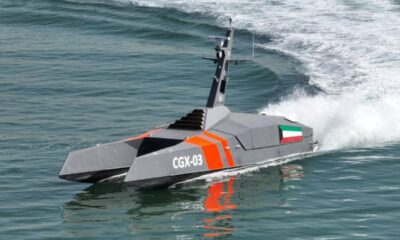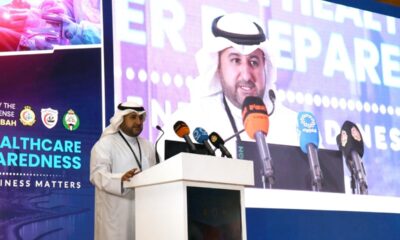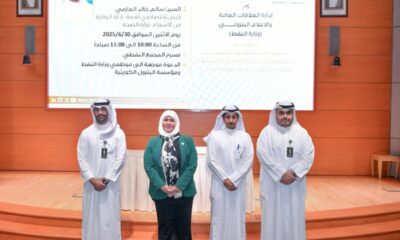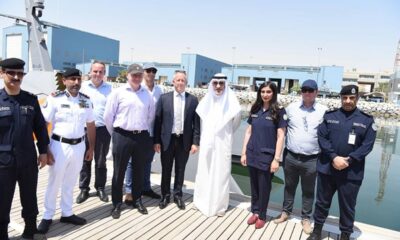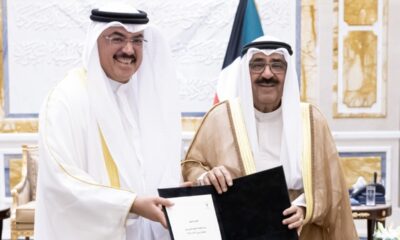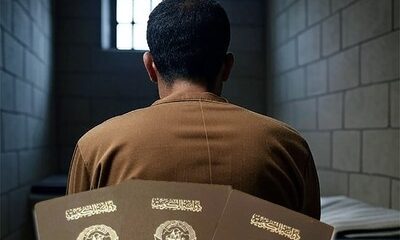KUWAIT: Director General of the Arab Planning Institute (API) Dr Abdullah Al-Shami has reaffirmed the institute’s commitment to supporting regional and international efforts aimed at achieving the 2030 Sustainable Development Goals (SDGs), particularly those related to good health, well-being and access to clean water. “These are interconnected goals, without which comprehensive development cannot be achieved,” he stated. Al-Shami made his remarks during the opening of a two-day regional training program titled “Health Vigilance, Air Quality and Sustainable Treatment of Hazardous Waste”, jointly organized by the API and the Arab League Educational, Cultural and Scientific Organization (ALECSO).
He stressed that the topics addressed in the program extend beyond traditional environmental and health concerns and are deeply tied to the broader strategic challenges confronting sustainable development in the Arab region. “Environmental quality, health systems vigilance, and sustainable management of hazardous waste have become key indicators of a nation’s readiness to safeguard its people, resources and environment,” Al-Shami added.
He noted that the API views the program as a model of Arab institutional cooperation that blends strategic vision with practical expertise and scientific knowledge. “This reflects our belief in the importance of capacity building and knowledge exchange across Arab states,” he said. Al-Shami also underscored the program’s alignment with key SDGs, including Goal 3 (Good Health and Well-being), Goal 6 (Clean Water and Sanitation), and Goal 13 (Climate Action). He expressed hope that the gathering would serve as a platform to foster dialogue, promote awareness, and forge effective partnerships across the Arab world in the fields of environment, public health and sustainable development.
For his part, Director of the Science and Scientific Research Department at ALECSO Dr Mohammed Abu Darwish emphasized the need to strengthen meaningful partnerships to advance sustainable development in the Arab region. He warned that health and environmental challenges are no longer confined to developing nations, but are now global in scale, citing the rising incidence of diseases linked to air and water pollution, and the growing burden of hazardous medical waste, especially in the wake of recent pandemics.
Abu Darwish called for a comprehensive and integrated approach to tackling these pressing issues, noting that the program aims to bring together a distinguished group of experts and decision-makers to formulate practical and actionable solutions. He also highlighted the importance of cooperation between governments, academia, the private sector, and civil society in responding to these challenges.
He noted that sharing successful experiences among Arab countries, while remaining open to global best practices, is key to building more resilient and sustainable health and environmental systems. Abu Darwish expressed hope that the program would achieve several key outcomes, including greater awareness of health vigilance, enhanced institutional capacities for monitoring air quality and managing hazardous waste, and the integration of these themes into educational and training curricula.
The two-day program features five dialogue sessions on each day. Topics on the first day include: Health Vigilance Towards a Sustainable Health System, Monitoring and Improving Air Quality, Sustainable Treatment of Medical and Hazardous Waste, Health Awareness, Environmental and Health Policies and Legislation, and Arab Experiences in Achieving Arab Air Quality and Sustainable Treatment of Hazardous Medical Waste.
The second day will cover: Successful Global Experiences in Medical Waste Management, Incorporating Health Vigilance Concepts into Educational Curricula, Incorporating Medical Waste Management into Curricula, Innovative Solutions and Modern Technologies, and a continuation of Arab Experiences in Achieving Arab Air Quality and Sustainable Treatment of Hazardous Medical Waste. The Arab Planning Institute, established in 1980 and headquartered in Kuwait, is an independent, non-profit regional organization that works to advance economic and social development across Arab countries through capacity building, research, advisory services and knowledge exchange. — KUNA





